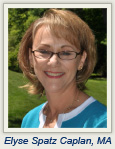 Cancer has been stalking me all my life. My mother’s mother had died of breast cancer at a relatively young age. My mother was diagnosed with breast cancer in the early 1960s, when she was 35 and I was just 5 years old. Although she was told that she probably wouldn’t live more than 2 years, she survived and lived another 26 years cancer-free, until 1989, when she was diagnosed with lung cancer. She died 2 years later.
Cancer has been stalking me all my life. My mother’s mother had died of breast cancer at a relatively young age. My mother was diagnosed with breast cancer in the early 1960s, when she was 35 and I was just 5 years old. Although she was told that she probably wouldn’t live more than 2 years, she survived and lived another 26 years cancer-free, until 1989, when she was diagnosed with lung cancer. She died 2 years later.
It was while taking care of my mother during her last few weeks of life that I discovered I, too, had breast cancer. I had felt a lump in my left breast while taking a shower in my parents’ home and immediately knew what it meant. Just as I was turning 34, the disease had come for me.
Proactive Stance
Because of my family history of cancer—my brother had both Hodgkin and non-Hodgkin lymphoma and died from a rare pancreatic neuroendocrine cancer, and my father also died from pancreatic cancer—even before getting my diagnosis, I had decided to be as proactive as I could to protect my health. I had seen a breast surgeon only 2 months before my diagnosis to map out a surveillance plan for me to start mammogram and ultrasound screenings, to stay ahead of the cancer. Even though I had been expecting a breast cancer diagnosis, when it finally came I was terrified. I had three young sons—aged 7, 5, and 2—and I thought, “These children need their mother; I cannot die.”
My cancer was classified stage IIB multicentric disease, and I was given a mastectomy and four rounds of combination therapy with doxorubicin and cyclophosphamide. Because of my cancer history, I also decided to have a prophylactic contralateral mastectomy, something unheard of at the time. Although my surgeon was against the surgery, I didn’t want to wait for the other shoe to drop. I needed to raise my sons and see them grow up. I’d always lived with the worry that breast cancer would enter into my life, and now that it had, I had to deal with it. I can live without breasts but I can’t live without my life.
Changes in Being a Cancer Survivor
 Because my professional training is in speech/language pathology and psychology, I decided to use my experience with cancer to help others coping with the disease. When I became the psychosocial program coordinator at a major cancer center nearly 20 years ago, the term “quality of life” was just becoming part of the vernacular, but no one could really define what it meant. Today, we can more clearly talk to patients about what a good quality of life means to them as they live with cancer. Is it important for survivors to continue with their careers? To keep their hair as they go through treatment? To see their children graduate from college or get married? The availability of less toxic, more effective targeted treatments is giving patients the kinds of options I never had.
Because my professional training is in speech/language pathology and psychology, I decided to use my experience with cancer to help others coping with the disease. When I became the psychosocial program coordinator at a major cancer center nearly 20 years ago, the term “quality of life” was just becoming part of the vernacular, but no one could really define what it meant. Today, we can more clearly talk to patients about what a good quality of life means to them as they live with cancer. Is it important for survivors to continue with their careers? To keep their hair as they go through treatment? To see their children graduate from college or get married? The availability of less toxic, more effective targeted treatments is giving patients the kinds of options I never had.
And patients are much better informed about their disease than I was when I was diagnosed 2 decades ago. They go into their oncologist’s office armed with information that needs to be distilled down and personalized for each patient. As a result, physicians need to spend more time with patients, answering their questions and listening to their concerns, and then tailoring treatment based not just on their cancer but on their quality-of-life needs as well. ■
Elyse Spatz Caplan, MA, is Director of Programs and Partnerships for Living Beyond Breast Cancer, in Haverford, Pennsylvania.

